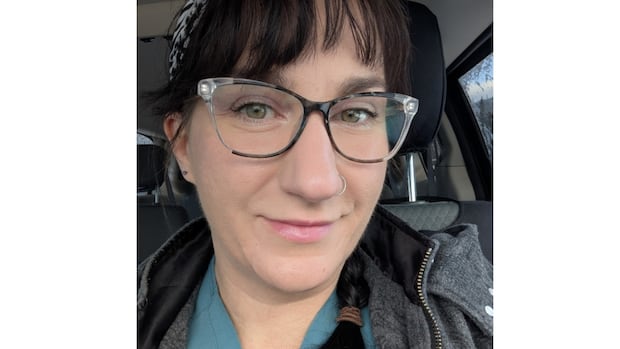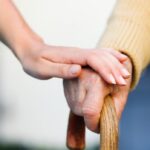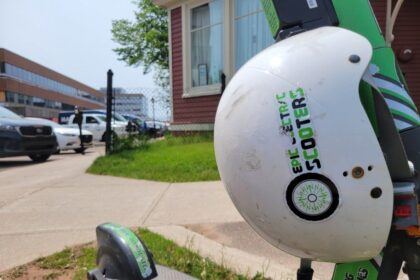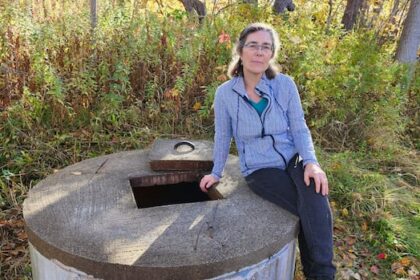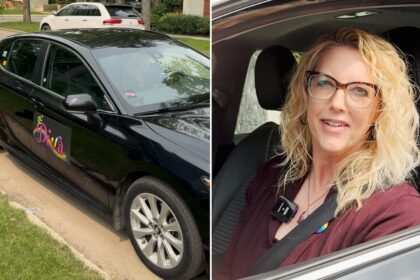The Current23:43Reformed “anti-vaxxer” speaks outWhen her two-month-old daughter wouldn’t stop crying after a vaccine shot, Lydia called public health in Alberta, seeking some advice and reassurance. Instead, she says the call left her feeling dismissed and humiliated. “They weren’t very helpful and kind of blew me off as a first-time mom. Told me it was normal and that if I was really afraid, I’d take her to the ER,” Lydia told The Current’s Matt Galloway. “It just kind of felt embarrassing and it didn’t really make me feel like I could trust them.”Lydia is now a licensed practical nurse and vaccine advocate; the CBC is not revealing her full name because she says she’s faced threats and harassment related to that work. But that public health call was the start of something else: for years, Lydia was a proud anti-vaxxer.The call happened in 2008, shortly after Lydia and her husband moved to rural Alberta. She had given up work to care for her daughter, and didn’t have any family nearby. Frustrated by her interaction with public health, she turned to an online forum for mothers, where other moms had recently helped her with breastfeeding advice. “It felt like when I talked to the other moms that they also cared about my child in a way that I didn’t feel when I called public health … you kind of have this sense of community,” she said.”When I told them about my daughter’s vaccine reaction, they had all these cautionary tales … and just scared me out of continuing to vaccinate her.”Myths have ‘kernel of truth’Lydia’s daughter was fine after a couple of days. Up to that point, Lydia had generally trusted in vaccines and the medical advice around them. But as she read more online, she said she started to gradually believe the myths she was encountering — in part out of a desire to protect her kids.”A lot of these vaccine myths have some kind of kernel of truth, or something that sounds plausible. But when you zoom out and you look at bigger studies, they just don’t hold water.”She initially slowed down her daughter’s vaccine schedule, then skipped some entirely.”Then I had two more kids, I did not vaccinate them either, and I just fell victim to misinformation,” she said.WATCH | Doctor never thought she’d see measles surge again in her lifetime: Alberta measles outbreak ‘an appalling situation,’ says infectious diseases specialist Dr. Lynora Saxinger, an infectious diseases specialist, says the rising number of measles cases in Alberta is not something she ‘expected to see in her lifetime as an infection doctor.’ As of Wednesday, the province reported 1,246 cases. This year Canada has experienced its worst measles outbreak in decades, with 4,619 confirmed cases as of Sept. 13. Medical experts have urged people to get vaccinated against the disease, which was declared eliminated in 1998 after a universal, two-dose schedule was established. According to Health Canada, 88 per cent of confirmed cases this year have been in unvaccinated individuals.Dr. Cora Constantinescu, a pediatrician and infectious disease specialist, said that some just don’t see measles as a threat to healthy children. But she warned that isn’t the case. “You cannot underestimate what a hospitalization, even in the best of places, means to a child and their family,” said Constantinescu, a clinical associate professor with the Cumming School of Medicine at the University of Calgary.”We don’t have high mortality, we do have really good outcomes. But that doesn’t mean it doesn’t [mean] suffering and trauma to the child and that family going through that disease.”Dr. Cora Constantinescu thinks it’s important for people ‘to be vaccine advocates within their own circle.’ (Submitted by Cora Constantinescu)Pandemic fuelled vaccine hesitancyIn an online survey conducted by Angus Reid last year, 17 per cent of parents of children under 18 said they were “really against” vaccinating their kids. That figure is a four-fold increase from 2019, when it was 4 per cent. The online survey polled 1,626 Canadian adults from Feb. 16-19, 2024. Part of Constantinescu’s work is as a physician at Alberta Children’s Hospital’s vaccine hesitancy clinic. She said there are many different factors that play into vaccine hesitancy or low uptake, including difficulties in accessing health care in remote areas.Some communities may have religious or cultural reasons for refusing vaccinations, while newcomer or Indigenous communities may have a distrust of government, or lack language skills to navigate the health-care system. She thinks the COVID-19 pandemic had a specific impact on vaccine opposition.”[There were] a myriad of public health measures that people felt interfered with their daily lives and freedom … and I think the vaccine ended up taking the blame for a lot of it,” she said.”A lot of that now is translating to vaccination attitudes as a whole.”WATCH | What makes measles so contagious?: Measles: Understanding the most contagious preventable disease | About ThatThere are early signals that measles — one of the world’s most contagious but preventable diseases — may be spreading in parts of Canada. Andrew Chang breaks down the way the virus attacks the body and what makes it so contagious.By contrast, the pandemic was when Lydia started to question some of the anti-vaxx movement’s views. For years, she had been told that sanitation and hygiene were important in reducing the spread of disease. But those same proponents were now objecting to hand sanitizer and masking.”The hypocrisy of the movement kind of made me consider I could be wrong,” she said.She started to question other anti-vaxx points she had spent years believing in, emailing her questions to experts.”I had immunologists and PhDs and pediatricians that were just willing to go through each and every myth I believed,” she said.Another myth was shattered around the same time, when her son was diagnosed with autism. Many anti-vaxxers argue there is a link between childhood vaccination and autism, though those claims were debunked decades ago.Lydia refused to believe he could have the condition, initially thinking she had done everything necessary to avoid such a diagnosis. But she eventually accepted the diagnosis, and its implication that the vaccine link is a myth.”My son was completely unvaccinated — and he is autistic.”Constantinescu says measles can be traumatizing for a child and their family, especially if they are hospitalized. (JGA/Shutterstock)Becoming a vaccine advocateLydia decided to vaccinate her children, but it still took time to get over her long-held fears. In the years since her daughter’s vaccine reaction, Lydia says health-care workers have become more aware of vaccine hesitancy and how to work with nervous parents. “My nurse was great. She said, ‘You do what you can handle, what your anxiety can handle. I’ll keep track of what’s remaining and we’ll go as fast or as slow as you want,'” Lydia remembers. Nowadays, she speaks at public events about overcoming her own vaccine hesitancy, and is part of an online support group that talks through fears that parents have. She also tries to have those conversations in her work as a nurse — something she thinks was missing for her. Constantinescu also thinks it’s important for people “to be vaccine advocates within their own circle,” pointing out that there is a silent majority of parents who do vaccinate their kids.”That doesn’t mean that you have to know everything about vaccinology,” she said.”It just means that you have to share that you’ve chosen to vaccinate your children, you have chosen to protect them.”Lydia thinks that as a former anti-vaxxer, she’s in a unique position to help worried parents. “The only way you can talk to them about it is if you hear them out first. It kind of opens up that conversation,” she said. “But if you shut a person down … they’re not gonna hear anything you have to say.”The Angus Reid Institute said its online survey was conducted among a randomized sample of Canadian adults, who are members of the Angus Reid Forum. For comparison purposes only, a probability sample of this size would carry a margin of error of plus or minus two percentage points, 19 times out of 20.
This mom was an antivaxxer, but changed her mind. Now she busts myths for other parents
